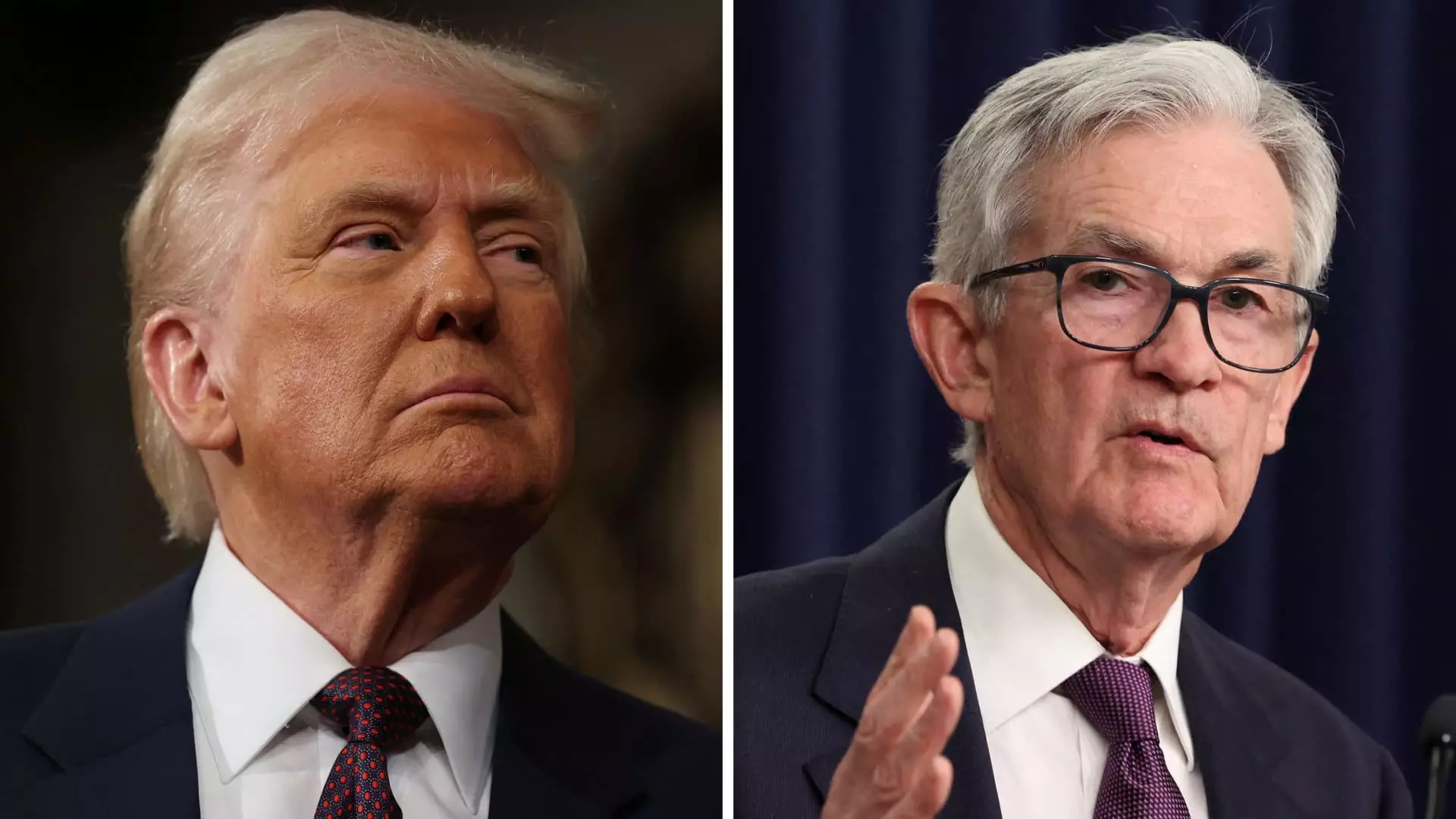Donald Trump’s recent outburst on social media, calling for the Federal Reserve to lower interest rates while hinting at the termination of Chair Jerome Powell, reveals a troubling misunderstanding of economic fundamentals. His insistence on aggressive rate cuts to stimulate growth, seemingly without constraints, poses significant risks not only to fiscal stability but also to the very fabric of the American economy. The allure of short-term gains often blinds policymakers to the long-lasting consequences of their decisions, and Trump’s re-emerging fixation on Powell indicates a dangerous precedent in the intertwining of politics and monetary policy.
The European Comparison: Misguided Simplicity
In his Truth Social post, Trump compared the U.S. monetary approach unfavorably with that of the European Central Bank, which is indeed poised to cut rates. However, this simplistic comparison fails to recognize the stark differences between the two economies. The European landscape is grappling with its unique set of challenges—such as stagnant growth and geopolitical tensions—that are not mirrored in the U.S. economy. Basing U.S. policy on superficial comparisons distracts from nuanced economic understanding and jeopardizes the country’s economic resilience.
The Tariff Dilemma: A Political Shackle on Monetary Policy
Chair Jerome Powell’s recent remarks reflect the dire circumstance the Federal Reserve finds itself in, entangled between the administration’s tariff initiatives and its dual mandate to control inflation and support employment. Trump’s continuous antagonism towards Powell further complicates this delicate balancing act. Instead of working collaboratively to enhance economic stability, this confrontation breeds uncertainty among investors and consumers alike. When the head of the nation openly criticizes the very body designed to manage economic discourse, it undermines the trust vital for the stable functioning of markets.
Why Termination Is Not the Answer
In a particularly alarming development, Trump suggested Powell’s firing—a move that not only disregards the independence of the Fed but also sets a problematic tone for future administrations. The notion that a president can terminate a Fed chair for unpopular decisions could diminish the institution’s efficacy and autonomy. Powell’s insistence that he cannot be removed under law reflects a necessary buffer that protects economic policy from political whims. Such independence is crucial in making sound monetary decisions free from mercurial influences that can lead to disastrous economic consequences.
The Importance of Stability in Uncertain Times
As the Biden administration navigates its own economic challenges, ensuring continuity and stability within the economic framework is imperative. History has shown that all-consuming political agendas often eclipse necessary economic reform, leading to disastrous ramifications. In moments of flux, it’s vital to eschew populism in favor of strategies that build sustainable growth. Instead of perpetuating an environment of uncertainty through erratic calls for rate cuts or a sweeping leadership change, Trump’s focus should shift toward collective economic strategy that fosters genuine growth without sacrificing long-term viability.
Your Stakeholder Relationships Matter
At the core of economic success are stakeholder relationships; this encompasses not only monetary policy but also how the government interacts with businesses and consumers. If the government continually undermines institutions like the Federal Reserve, it sends a chilling message to all stakeholders involved. Trust in the financial system, coupled with productive collaboration, forms the basis of a resilient economy. Abandoning these principles will only generate a cycle of economic volatility that is dangerous for American prosperity.

